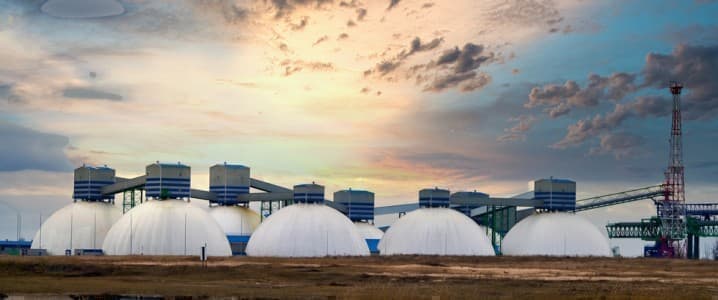Last week, European Union ministers accepted major gas cuts across Europe in the face of gas shortage worries going into the winter. So what are countries around the world doing to curb their energy usage as they see shortages and rising prices? Several governments are now introducing measures to ensure they maintain their energy security as the flow of Russian gas begins to slow. Last week, the European Commission proposed a 15 percent cut in gas usage across member states, starting in August and ending in March 2023 to ease worries of energy insecurity going into the winter months. Although this is one year less than previously recommended. However, Spain, Portugal, Greece, and Denmark all opposed compulsory cuts, with Spain pointing to its energy self-sufficiency. Certain member states argued against the gas cuts, highlighting that some European countries have come to rely much more heavily on Russian gas than others, making the curbs unjust.
Ministers agreed to a lighter version of the proposal with voluntary cuts, in which not all member states must reduce their gas usage by the same amount. The agreement to voluntary cuts was made by member states as governments across the EU see the total cut-off of Russian gas as increasingly likely. The cuts become mandatory in the case of an energy emergency.
Kadri Simson, European Commissioner for Energy explained how the move can help countries across the region protect their economies. He stated, “The impact on GDP will be significantly smaller if we start saving now and don’t wait until Russia forces us to do so.” However, estimates suggest that the cut-off of Russian gas could make the EU’s GDP fall by around 1.5 percent if the winter is cold and if member states do not take swift preventative action to save energy.
Imports of Russian oil are already decreasing, with the flows from the Nord Stream 1 pipeline expected to fall to around 20 percent of capacity this week. This is likely to hinder EU hopes of filling its gas storage to 80 percent before the cut-off. But some countries have already outlined their plans to save energy over the coming months to ensure their adherence to the scheme and plan for greater energy security.
In France, shops risk fines if they do not keep their doors shut while using air conditioning. Illuminated business signs must be turned off once the business is closed and lit-up advertising is to be turned off during the early hours of the morning. In Germany, spotlights on public monuments will be turned off, as well as fountains. In addition, public swimming and sports facilities must switch to cold water for showers. Municipal buildings will also reduce the use of air conditioning and heating equipment throughout the year.
Related: Falling Prices And High Costs Eat Away At Steelmaker Margins
While in Greece, the government is strongly pushing people to change their habits with “operation thermostat” requiring that air conditioning is set at a minimum of 27oC in the summer. In addition, computers must be switched off after office hours and huge investments, around €640 million, are set to be made to install more efficient windows, heating, and cooling systems in state-owned buildings. And in Ireland, people are being asked to reduce their driving speed to save on petrol, as well as reduce their energy consumption overall.
Italy is also planning to turn off lights on its monuments and is prepared to go much further by closing all commercial businesses after 7 pm in the face of an energy emergency. Finally, in Spain, the government has reminded the rest of the EU that it does not rely on Russian gas and is largely self-sustainable. However, it has agreed to between a 7 and 8 percent reduction in gas use by encouraging people to use energy at home more responsibly.
Yet, in the U.K., the government is making backup plans to prevent shortages without massively changing public behaviour. The National Grid has asked coal power plants to be on standby in the winter months to fill the energy gap created by gas shortages if needed. In this case, plants would be paid more to generate extra electricity, while consumers are incentivised to use less. Both EDF and Drax have agreed to keep their coal plants ready to provide power if required. Plans may also be drawn up to pay industrial users to cut their energy usage.
As the U.K. is less reliant on Russian gas than some other European countries, the government is not expecting severe shortages. But consumer prices are projected to rise significantly, with household energy bills reaching £3,850 in 2023. In addition, this could have a knock-on effect on Britain’s climate pledges, having planned to make more coal plant closures ahead of a total end to the industry in 2024.
While some countries across Europe are prepared to cut their gas use significantly, others less reliant on Russian energy are reluctant to do so. However, most countries across the region are likely to join forces in cohesive action to reduce the impact of the inevitable drop in Russian energy imports to the rest of Europe to reduce the negative economic impact on the whole region.
ADVERTISEMENT
By Felicity Bradstock for Oilprice.com
More Top Reads From Oilprice.com:
- Nuclear And Hydropower Falter As Droughts Grip Europe
- Gas-To-Oil Switch May Not Be A Huge Catalyst For EU Crude Demand
- Oil Jumps On Massive Crude Inventory Draw



















For the time being Europe indeed the entire *WORLD* save Australia is dependent upon US Dollar denominated liquified natural gas and associated transportation costs which are a remarkably high cost at the moment for the latter and should be great news for the US Transportation Sector.